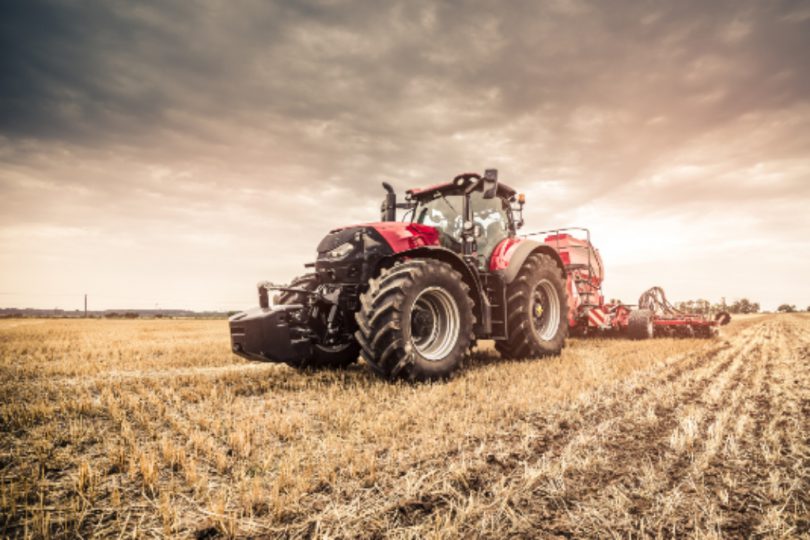The war in Ukraine threatens to disrupt global wheat supplies and further increase fuel and fertiliser costs. This adds to the pressure on Scottish food producers, already struggling with Brexit disruption to the workforce and the end of EU subsidies. Many Scottish farmers are planting less this year because of their experience last harvest – at a time when food security and food poverty are growing. Meanwhile Ireland, still in the EU, ranks number one in the global food security index.
Global wheat prices are soaring, Russia is a major exporter of nitrogen fertiliser and the price for that is up 200% year on year. Scottish farmers import at least 60% of their fertiliser. Energy costs for farmers are also rising – they are not protected by the domestic fuel cap.
Scotland’s agriculture sector was already struggling with Brexit disruption – after having to leave crops to rot in the field last autumn because of a lack of workers to pick them, many farmers are planning to plant less this season – some are planting more than 25% less,
Across the water, the Irish Government is creating a national effort to maximise the country’s food production this year and to help support the farming sector. The Scottish NFU is calling for more land to be put into food production immediately – but there would need to be a plan to bring in more agricultural workers and the Scottish Government has no say over immigration. The UK Government meanwhile stands accused of a “total lack of understanding of how food production works”.
Scotland’s Farmers Struggling to Mitigate Effects of Brexit – Food Production Falling
Farmers are finding it difficult to plan as they don’t know what subsidies will be available. Westminster’s replacement for the EU’s Common Agricultural Policy is less generous, and less focused on food production. It is not clear yet how much funding will flow to Scotland for its own CAP replacement, and the Scottish Government scheme’s details have not yet been published.
Unlike the UK government, the Scottish government has set out that an explicit aim will be to maintain food production and keep farmers on the land. But Holyrood’s ability to successfully implement its policies will be hamstrung by Westminster’s control of the funding – which will be delivered to Scotland in line with the financials of England’s choices.
Farmers are already concerned about the effects of ending freedom of movement on their sector. Only 30,000 seasonal worker visas are issued – compared to at least 100,000 workers who arrived pre Brexit. Smaller Scottish farmers will struggle to pay the highest wages,
Angus food producer and commentator James Porter writing in the Scottish Farmer said that paying workers in line with the Home Office plan to put seasonal workers on the same rate as skilled workers “would add around £300k to my own wage bill alone, and tens of millions of pounds to growers nationally.” He added:
“Well done the Home Office. It’s not easy to single-handedly wipe out a vital, productive and efficiently functioning industry, but those guys could do it with both hands tied behind their backs whilst sleeping.”
Many fruit and vegetable growers are planting less than last year. The FT reported for example that all 20 members of the co-operative East of Scotland growers, which specialises in broccoli and cauliflower, were reducing their crops significantly, while two were looking at pulling out of vegetables altogether. The Ferret reported that they told the NFU AGM last month they are reducing production by 26%.
Food exports have also suffered – Scotland’s strong seed potato sector has suffered along with all other exporters and importers who have had to absorb extra costs, bureaucracy and stress to continue to deal with the EU’s enormous single market after Brexit. 
England’s post-Brexit CAP replacement offers less support to farmers
The replacement for the Common Agricultural Policy for England offers significantly less support for food producers. The president of the National Farmers’ Union, Minette Batters, last month made an outspoken speech attacking what she said was a “completely contradictory” policy on farming that showed a “total lack of understanding of how food production works”. “
She asked:
“Are we turning a blind eye to the impact of global food production while we pursue a domestic vision of a chocolate box countryside?”
The FT quotes an arable farmer who has worked out he will get less than half the amount of support per hectare under the UK Government’s new schemes.
“The reduction in basic payments is suddenly hitting home for farmers, at a time when input prices are rising very sharply,” said Wyn Grant, emeritus professor at the University of Warwick, who studies farmers and politics. “They’ve discovered that the ELMS scheme is not going to replace the money they got before, it’s going to go to different people and it will be difficult to access. There will be a lot of transaction costs.”
Livestock farmers, who have been particularly dependent on EU payments to break even, expect a squeeze. Julia Aglionby, a Cumbria farmer and executive director of the Foundation for Common Land, said the government’s gradual approach was hurting “micro-businesses”.
Scottish agriculture got proportionately more from CAP than England
Scotland got significantly more money per head than England from the EU’s Common Agricultural Policy, because it still has more small farms and crofts, on more marginal land. This reflects the nature of farming in Scotland, with 85% of Scottish land made up of “less favoured farmland”.
By the time the UK joined the EU in the 70s, England had already lost a lot of small farms and moved to a more agribusiness model. But the CAP was designed in a post-war Europe that remembered food scarcity. It was intended to support small producers to create local, sustainable and nutritious food. The idea was that not all of this cost should be paid by the consumer – some should be paid by the taxpayer.
In times when harvests were good and there was cheaper food available worldwide, critics of CAP argued it was too expensive and that cheaper food could be bought outside Europe. But now we are in a different world. We are seeing a new vulnerability. War threatens the planting and harvesting of grain in Ukraine. Climate change is also threatening the output of countries like Australia and Brazil.
Conclusion
At the moment that food security becomes an issue of massive importance, Scotland’s agricultural production is set to fall. Until an independent Scotland returns to the EU and can once again participate in the CAP, it will have to dance to Westminster’s tune, unable to finance its food production goals, set its own immigration policy, or build on its successful food export sector.








